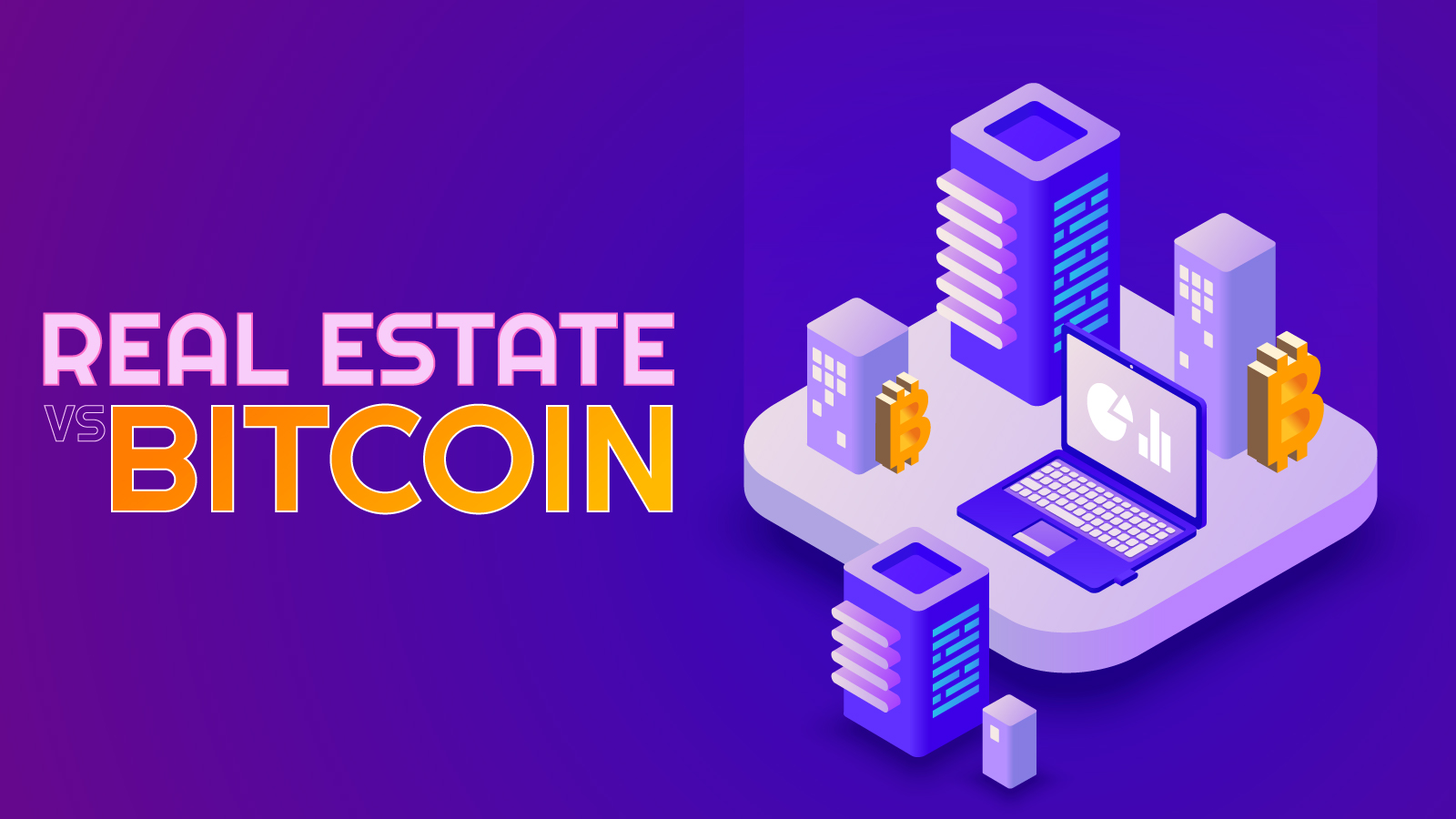
Real Estate vs Bitcoin: Where Should You Invest?
There are countless investment options in modern financial markets, and choosing the most profitable one is no easy task. While real estate and bitcoin rank high among asset classes to consider, they differ in several ways. Many traditional investors have touted real estate as the safest asset class where you can incur low-risk, steady-return earning opportunities on your portfolio. On the other hand, bitcoin is widely celebrated by millennials and Gen Z’ers as the best investment that can make you rich. Suffice to say; both assets have several endearing features that cater to investors’ dire needs. In this article, we will examine real estate vs bitcoin, citing their characteristics and their pros and cons.
1/10 of the world’s wealth comes from real estate
Real estate is an age-long investment that has made a lot of people billionaires globally. About a tenth of the world’s wealthiest people got their wealth mostly from building real estate empires. Andrew Carnegie, the American industrialist, said 90% of millionaires became so, thanks to real estate. Real estate investment essentially involves purchasing a property (developed or undeveloped) in the hopes of selling it at a higher price much later or earning passively from it via rent. There are diverse investment options available, including buying and selling lands, leasing lands and properties, renting apartments, and a host of others.
Real estate deals with tangible assets; properties can be bought, improved, and modified repeatedly in a value-money loop. When you buy right, you can get benefits in the form of increasing value, rent, and in some countries, tax breaks. Seasoned investors advise a level of exposure to real estate to mitigate risk as the coronavirus taught us to spread our risk thinly.
Real Estate Pros
1. Long-term Stability: The real estate market is one of the few markets with a low-risk profile and steady returns on investment. Since the financial crisis of 2008, the housing market has rarely suffered from sudden changes and harsh value fluxes.
2. Diverse Investment Opportunities: From flipping properties and lands to building housing units for rent, there are plenty of real estate investment opportunities one can take advantage of. Entering the real estate market is a great way to diversify one’s portfolio and hedge against losses from other assets.
3. Tax benefits: Purchasing real estate provides some tax relief, especially for seniors or people with disabilities. Qualifying homeowners get to reduce their tax burden, which can significantly boost their portfolio.
4. Tangible Assets: In real estate, investors deal with substantial assets that he or she has complete control over.
Real Estate Cons
1. High Maintenance: Real estate can be demanding in terms of maintenance. Getting good value for your property requires periodic maintenance and repairs. sometimes, you even need your neighbors’ property to be well kept for your property to hold its value.
2. Costly Investment: The real estate market is quite challenging to enter. It helps if you have significant capital to start your investment journey.
3. Liquidity: Real estate is not easy to convert to cash like Bitcoin (BTC). . This is precisely why asset valuations don’t matter much when faced with debts, like the current Evergrande situation.
Understanding Bitcoin
Bitcoin has dominated financial news outlets across the world over the past several years, making it one of the most popular investments of the past decade. Rising in the wake of the housing market crisis in 2009, BTC has snowballed rapidly, attaining a trillion-dollar market capitalization and comfortably fitting compared with older assets such as gold and oil. This new form of digital money has attracted both institutional and individual investors thanks to its unique qualities. By introducing a trustless and secure way to exchange value, bitcoin rids the world of middlemen and their “cost of trust”. Anyone on the globe with an internet connection can transfer money in a secure, peer-to-peer way.
Bitcoin Pros
1. Decentralized: Bitcoin has no central authority to run things. Instead, a group of miners all over the world solves complex puzzles to validate transactions.
2. Cheap Investment: You can easily purchase a fraction of a bitcoin on any crypto exchange for as little as $1.
3. High Reward: A hundred dollar investment in bitcoin ten years ago is worth millions today. Bitcoin offers a high reward to investors who can hold or “hodl”, as they fondly say.
4. Non-inflationary: Bitcoin can be used as a financial tool to hedge against inflation as it has a fixed supply.
Bitcoin Cons
1. Volatility: Bitcoin is highly volatile. Although price swings can favor lucky traders, markets can be grimly unforgiving.
2. Security issues: Although blockchains are technically impossible to hack into, scammers have found ways to lure unsuspecting users into revealing their crypto wallet keys. Last year alone, about $2 billion worth of cryptocurrencies were lost in multiple hacks.
Real Estate vs Bitcoin: Which One is Better?
Not every investor has similar traits; hence, there is really no definitive conclusion to the real estate vs bitcoin argument. Investment choices always boil down to your motive and risk tolerance. Technically, Bitcoin is more likely to give you higher returns on your investment in the next five years. However, if you are averse to risk and are content with little and steady returns, buying real estate will probably suit you better.
As always, we at Investory like to encourage our readers to complete a due diligence process before investing. Take a look at some of our past articles and stay tuned for more in the future that can help you become a better blessing to you and your family.







